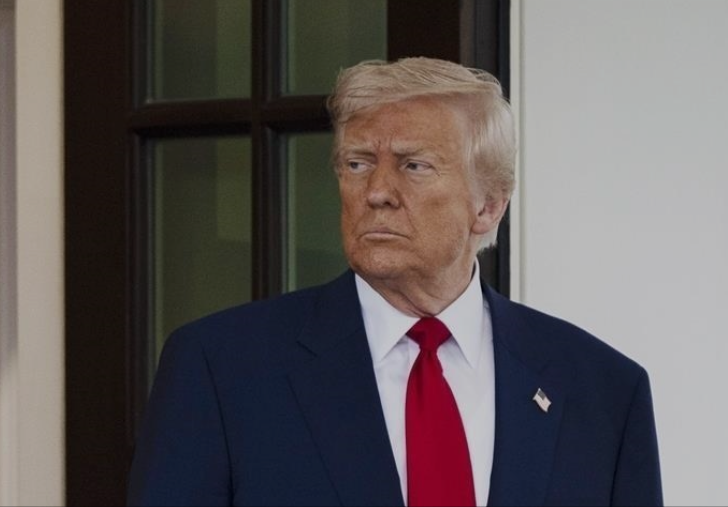In a stunning rebuke to one of the Trump administration’s most aggressive anti-immigration maneuvers, a newly declassified intelligence memo has revealed that President Donald Trump’s rationale for mass deportations to El Salvador was not backed by U.S. intelligence agencies—despite repeated claims to the contrary.
The memo, released under a Freedom of Information Act (FOIA) request and dated April 7, 2025, confirms that intelligence experts strongly disagreed with Trump’s assertion that Venezuelan President Nicolás Maduro was directing the violent criminal gang Tren de Aragua (TDA). Trump had used this unfounded claim to justify invoking the rarely used Alien Enemies Act—legislation originally passed in 1798—to expel hundreds of Venezuelan migrants to a high-risk Salvadoran detention facility known for human rights abuses.
According to the Office of the Director of National Intelligence (ODNI), there was no credible evidence supporting Trump’s claim that Maduro or his regime was coordinating with or directing TDA operations in the United States. “While Venezuela’s permissive environment enables TDA to operate,” the report states, “the Maduro regime probably does not have a policy of cooperating with TDA and is not directing TDA movement to and operations in the United States.”
Despite this clear intelligence assessment, Trump moved forward with a campaign of aggressive deportations and fear-driven rhetoric, falsely branding asylum seekers and migrants as national security threats. The deportations included removing individuals to El Salvador’s Terrorism Confinement Center, a notorious mega-prison where international observers have raised alarms about severe rights violations, including the imprisonment of individuals without trial or legal representation.
Journalistic investigations, including a March exposé by The New York Times, had already begun to uncover that Trump’s claims about Maduro and Tren de Aragua were “starkly at odds” with internal U.S. intelligence findings. The Times’ reporting prompted an unprecedented backlash from the Trump administration, which launched a criminal investigation into what it called a “selective leak,” while Attorney General Pam Bondi moved to roll back protections for press freedom during leak investigations.
However, the memo’s declassification has further vindicated the press and civil society organizations, revealing that the original intelligence findings should never have been classified to begin with. “The declassification proves that the material should have been public from the start—not used as an excuse to suppress sharing information with the press,” said Lauren Harper, chair on government secrecy at the Freedom of the Press Foundation.
While most agencies within the intelligence community rejected the link between Maduro and the gang, the FBI offered only a partial dissent. The bureau acknowledged there may be individual Venezuelan officials who facilitate TDA migration, but did not support the broader narrative that the gang was acting under regime orders or serving as proxies in the U.S.
The memo also raised serious doubts about the credibility of the detainees who allegedly implicated Maduro. Analysts warned that those individuals may have fabricated ties to the Venezuelan government in order to avoid punishment or gain favor with U.S. prosecutors.
Civil rights advocates have condemned the administration’s use of false intelligence to justify such extreme policies. “So you mean kidnapping folks off the streets and sending them to a foreign gulag was not justified by our own intelligence?” the Arkansas Justice Project wrote on social media. “They just made this up to dog whistle their base.”
Although courts have since intervened—blocking the continued use of the Alien Enemies Act in deportation cases and halting further removals to El Salvador—judges have yet to directly address the administration’s misleading narrative about Tren de Aragua.
The American Civil Liberties Union (ACLU) is now pushing the courts to compel the government to return Venezuelan deportees and ensure they are granted fair immigration hearings with due process.
Despite the growing public backlash, Director of National Intelligence Tulsi Gabbard defended the administration’s actions, stating, “It is outrageous that, as President Trump and his administration work hard every day to make America safe by deporting these violent criminals, some in the media remain intent on twisting and manipulating intelligence assessments to undermine the president’s agenda.”
However, open government advocates like Alexander B. Howard argue that the release of the memo serves as a powerful reminder of why transparency is essential to preserving democracy. “Sunlight remains the best disinfectant for falsehoods,” Howard said.
In truth, the memo exposes a dangerous precedent: that sweeping immigration policy—impacting real human lives—was driven not by facts, but by fiction. As more details emerge, the integrity of American governance, and the accountability of those in power, hang in the balance.



